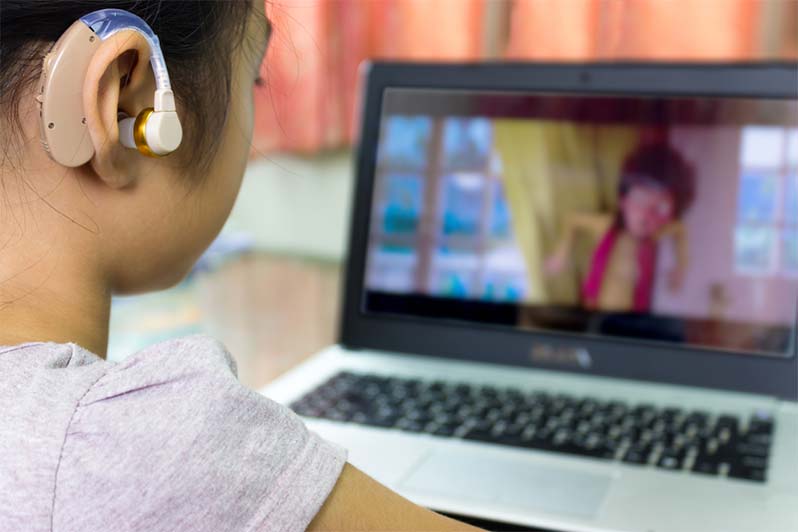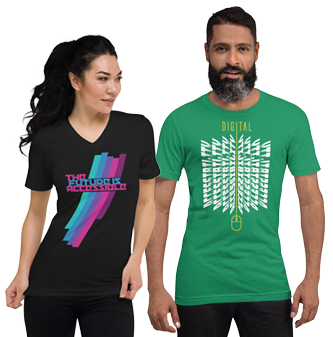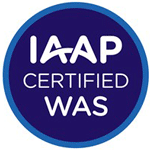International Association of Accessibility Professionals (IAAP) Certified Web Accessibility Specialist
Phoenix, Scottsdale, Mesa, AZ
 Microsoft believes there are no limits to what people can achieve when technology reflects the diversity of everyone. A few years ago, when our team started work on new a new internal marketing dashboard and workflow application, Matt (Equal Agency) provided accessibility guidance to make them readable and understandable by the widest possible audience and move us into compliance with WCAG standards. Matt's expertise made a world of difference in the design and delivery of our systems.
Microsoft believes there are no limits to what people can achieve when technology reflects the diversity of everyone. A few years ago, when our team started work on new a new internal marketing dashboard and workflow application, Matt (Equal Agency) provided accessibility guidance to make them readable and understandable by the widest possible audience and move us into compliance with WCAG standards. Matt's expertise made a world of difference in the design and delivery of our systems.
Keith Walsh
Senior Program Manager
Microsoft

 Matt’s expertise in accessibility helped Alaska Airlines remain true to its commitment of being an employer that is committed to diversity, equity and inclusion. His guidance was crucial to the successful design and development of the new award-winning career website.
Matt’s expertise in accessibility helped Alaska Airlines remain true to its commitment of being an employer that is committed to diversity, equity and inclusion. His guidance was crucial to the successful design and development of the new award-winning career website.
David Ige
Marketing and Brand Manager
Alaska Airlines
What does “accessibility” mean and why does it matter?
An overview on accessibility
When your website is “accessible”, it means that people with disabilities can easily use it. Approximately 20% of people in the United States have some sort of disability. Not all of these disabilities will prevent them from being able to use a website, but many of them will. These disabilities can be related to vision, hearing, motor skills, or cognition. Furthermore, these “disabilities” can be permanent or temporary. Let's take, for instance, a motor skills disability which would prevent the person from using a mouse and they instead rely on keyboard navigation. Maybe this person has a permanent impairment such as cerebral palsy or amputation, but there's many situations where they may only have a temporary impairment such as a broken arm, or they damaged their mouse and haven't had a chance to replace it. They may also just be elderly and don't have a steady hand or have arthritis in their hands.


People access websites using many different methods and assistive technologies and your website needs to accommodate these. Some people with vision impairments zoom into the webpage by 200 or 400% while others, who cannot see at all, rely on software that reads the different parts of the page aloud to them. Some people use a keyboard (with no mouse) and some use a “switch” that they control with their mouth or they speak to the computer and give voice commands to navigate. People with cognitive disabilities need your content to flow in a predictable order and might need the ability to turn off animations to prevent motion sickness or disorientation.
Why it Matters
There are three main reasons why your site needs to be accessible:
It's the law
(the LEGAL angle)
The Americans with Disabilities Act (ADA) requires certain businesses to make accommodations for people with disabilities. Failure to create an ADA-compliant site opens your business to lawsuits and could damage your brand. In 2022, there were 3,255 web accessibility lawsuits filed in federal court (this number goes up every year). Some of the higher profile lawsuits include companies such as Nike, CVS Pharmacy, Pizza Hut, and Harvard University. The bigger your business, the more at risk you are—especially if you have a physical storefront or building.
Disabled people matter
(the HUMAN angle)
People with disabilities want to be included and to contribute. More than 56 million people in the United States are living with a disability and they want access to your products and services so don't shut the door on those customers. You should also consider your brand. What does your company stand for? Hopefully your business cares about inclusion, diversity, and treating people fairly. Lots of brands talk about having these ideals, but when you have an accessible website, it proves that you care. It elevates your brand and is a great talking point.
Accessible websites perform better
(the TECHNICAL angle)
Accessible websites are built better. They use semantic HTML and follow proper web guidelines which means they are easier for people to use and easier for search engines to understand, both of which will improve your SEO ranking. Afterall, Google and Bing are essentially blind people using your site and trying to make sense of what each page is about.
Let's Make Your Website Accessible
There's no one size fits all solution for accessibility. Let's talk about what makes sense for your company and your website. Equal Agency can do accessible design and development for you, or if you have your own team, we can work as consultants to help guide your designers and developers to success. If you have an existing website, we can provide accessibility auditing and remediation services.

Web Accessibility Store
Equal Agency has created accessibility-themed designs for shirts, mugs, posters, and stickers. Show your a11y pride!
Shop Now
